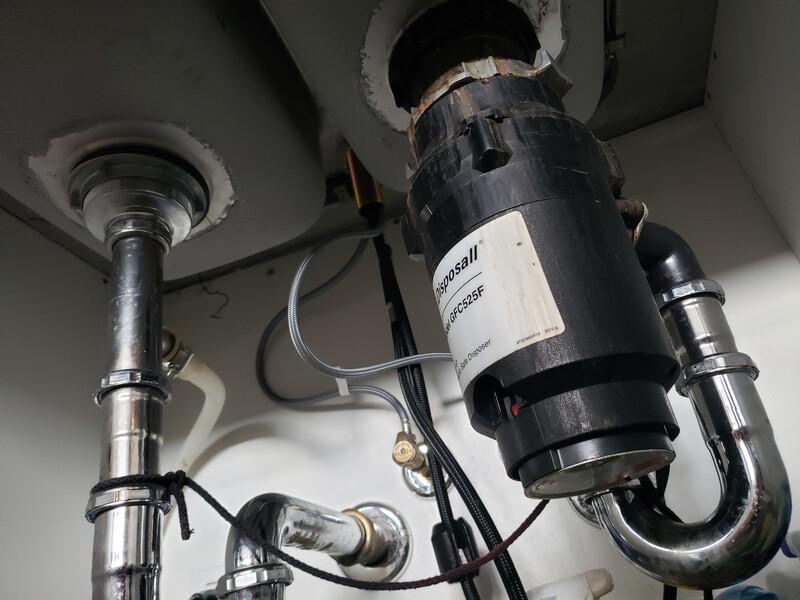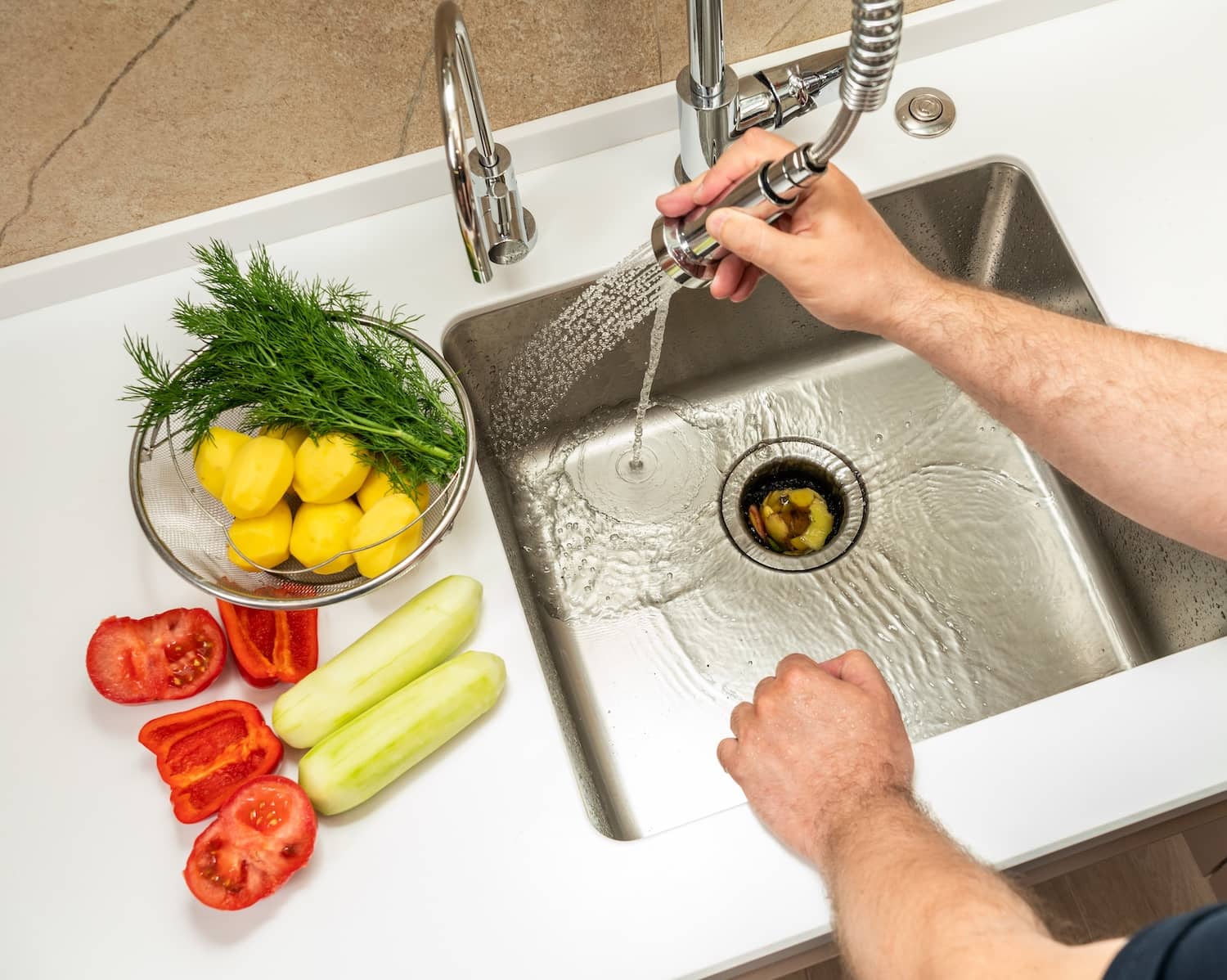Straightforward Steps to Stop a Leak in Your Garbage Disposal
Straightforward Steps to Stop a Leak in Your Garbage Disposal
Blog Article
Almost everyone seems to have their own notions in relation to Why Is .

Garbage disposals are crucial kitchen appliances that help in throwing away food waste efficiently. Nevertheless, a dripping garbage disposal can be a discouraging and untidy issue to take care of. Luckily, many leaks can be repaired easily with a couple of basic actions. In this post, we will review just how to fix a leaking waste disposal unit successfully.
Intro
Waste disposal unit are mounted under kitchen sinks and are created to shred food waste into smaller sized pieces, allowing it to go through the pipes system conveniently. While these tools are generally reputable, leaks can occur gradually because of deterioration, loosened links, or damages to the system.
Step-by-Step Guide to Fixing a Dripping Garbage Disposal
Switch off the Power
Prior to attempting any kind of fixings, make certain that the power to the waste disposal unit device is shut off to stop the threat of electrical shock.
Find the Leak
Identify the specific place of the leak and identify the cause
Tighten up Links
Utilize a wrench to tighten any loosened links between the disposal system and the pipes system.
Replace Seals or Gaskets
If the leak results from used seals or gaskets, get rid of the old elements and replace them with brand-new ones.
Patching Cracks or Openings
For fractures or holes in the disposal system, usage epoxy or a suitable patching product to seal the damaged location.
Identifying the Resource of the Leak
Before attempting to fix a dripping garbage disposal, it is necessary to identify the resource of the leakage. This can commonly be done via visual examination or by performing simple tests.
Visual Assessment
Inspect the garbage disposal system meticulously for any type of signs of water leak. Pay very close attention to areas around seals, gaskets, and connection points.
Evaluating for Leaks
One method to test for leaks is by running water via the disposal device and checking for any type of visible indicators of leak.
Typical Reasons For Leaks in Trash Disposals
Worn Seals and Gaskets
Seals and gaskets play a critical function in preventing water from dripping out of the garbage disposal. Gradually, these components can wear away, resulting in leaks around the disposal system.
Loose Connections
The links between the waste disposal unit and the plumbing system can come to be loose gradually, triggering water to leak out during operation.
Fractures or Openings in the Disposal Device
Physical damage to the garbage disposal, such as cracks or holes in the real estate, can additionally lead to leakages.
Devices and Products Needed for Fixing a Dripping Waste Disposal Unit
Prior to beginning the repair work process, gather the necessary tools and materials, including a screwdriver, adjustable wrench, plumbing technician's putty, replacement seals or gaskets, and epoxy or patching product for repairing cracks or openings.
Evaluating the Garbage Disposal After Repair Service
When the repair is full, examine the garbage disposal by running water through it to make sure that the leak has been fixed.
Preventive Maintenance Tips to Stay Clear Of Future Leaks
To stop future leakages, it is vital to execute regular upkeep on your waste disposal unit. This includes maintaining it tidy, preventing placing non-food items or difficult objects down the disposal, and occasionally looking for leaks or other concerns.
Final thought
Finally, dealing with a dripping waste disposal unit is a reasonably uncomplicated procedure that can be finished with fundamental tools and materials. By complying with the steps detailed in this article and practicing preventative upkeep, you can keep your waste disposal unit in good working condition and avoid expensive repair services in the future.
HERE’S HOW TO FIX YOUR GARBAGE DISPOSAL
WHAT TO DO IF SOMETHING IS STUCK IN YOUR GARBAGE DISPOSAL
If the impeller won’t turn, there’s probably something stuck in the disposal. It could be a steak bone or peach pit, although plumbers report pulling all sorts of inappropriate objects out of disposals, such as bottle caps or aluminum foil. Make sure power to the disposal is off, and look inside to see if you can see the source of the jam.
Never stick your fingers in a disposal. Pull out anything you see with tongs or pliers.
If the disposal still won’t work, it may be time to call a plumber or consider buying a new disposal. GEM Plumbing & Heating is here for all of your garbage disposal needs.
WHAT TO DO IF YOUR GARBAGE DISPOSAL DRAIN IS CLOGGED
Take everything out from underneath your sink and put a bucket or other container under your disposal to catch any water that drains out. Disconnect your disposal from the power supply. If it’s plugged into a wall outlet, unplug it. If it’s hardwired into an electrical box, go to the electrical panel and turn off the breaker for the disposal. Pour ¼ cup of baking soda into the drain, followed by ½ cup of white vinegar. Give the solution a few minutes to fizz and do its work. Look into the disposal with a flashlight to see if you can see an object that might be causing the clog. If you see it, remove it using tongs or pliers. MORE TIPS ON DEALING WITH A CLOGGED GARBAGE DISPOSAL
Never use drain cleaner in a garbage disposal. It can damage the plastic parts inside the disposal. You can also be splashed with the caustic liquid while working to clear the clog. Beware! Never stick your fingers into a garbage disposal. Trust us — not a good idea. In many instances, your dishwasher drains through your garbage disposal. This allows the disposal to grind any large food particles that may be drained out of your dishwasher. There are some jurisdictions, however, where the plumbing code prohibits such a connection. WHAT TO DO WHEN YOUR DISHWASHER DRAINS THROUGH THE DISPOSAL
Run some water in the sink so your plunger has at least a ½-inch of water to create a seal and plunge vigorously up and down several times. You may need to repeat this several times. Run hot water down the drain to clear any residue that remains.

We are very enthusiastic about Why Is and I really hope you appreciated my entry. Sharing is nice. Helping people is fun. Thanks a lot for going through it.
Need Help? Hire Us Now! Report this page